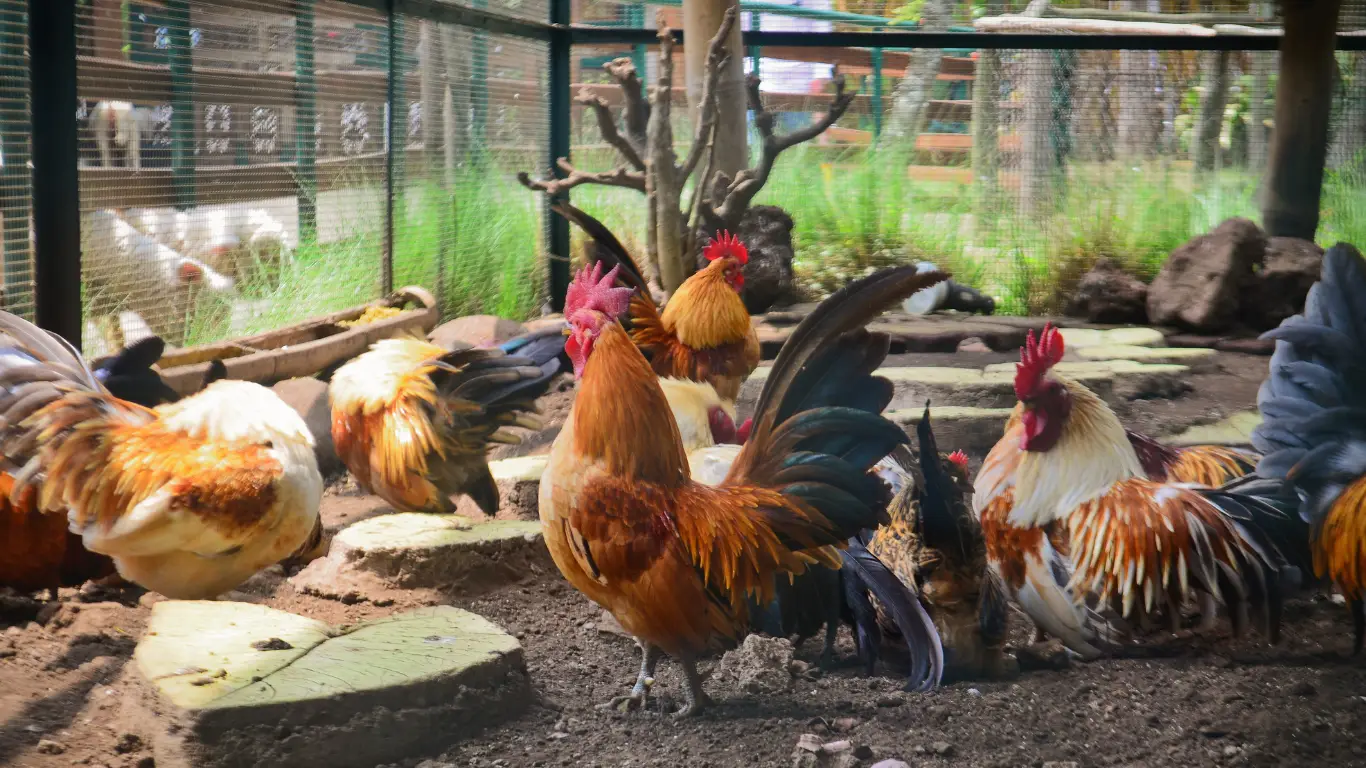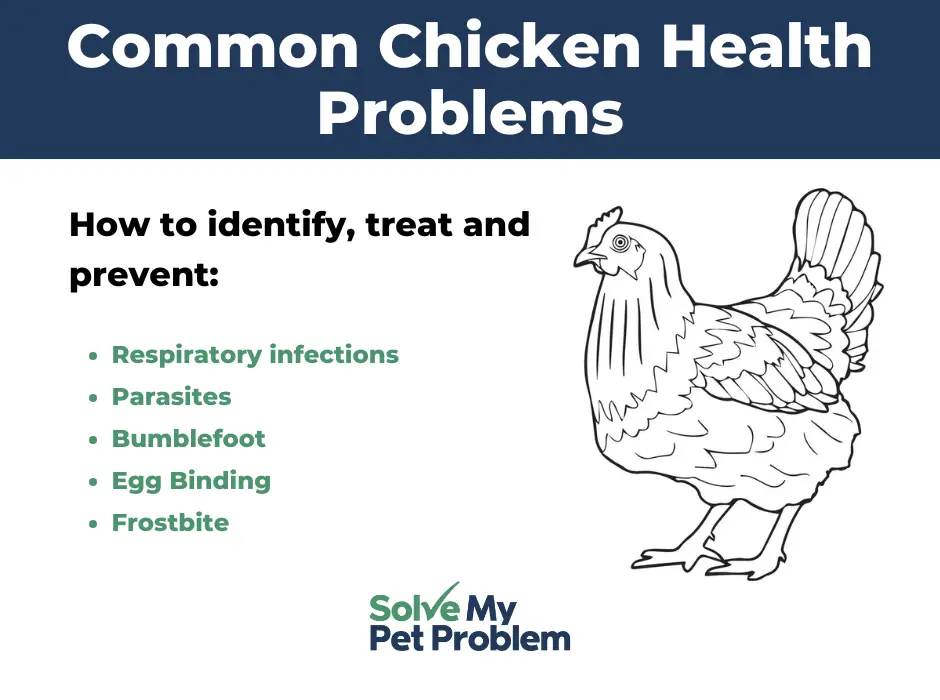Share via:
Dealing with Common Chicken Health Issues
- Summary
- Deep Dive
- FAQs

-
-
-
Summary – Chicken Health Issues
Raising chickens can be rewarding, but it's essential to address common chicken health issues to maintain a healthy flock. Respiratory infections, caused by viruses or bacteria, can spread quickly and require proper ventilation and isolation of sick birds. Parasites, both internal (worms) and external (mites and lice), can cause discomfort and health problems, making cleanliness and quarantine critical. Bumblefoot, a bacterial infection, occurs from cuts on feet and demands clean bedding and prompt treatment. Egg binding, where an egg gets stuck, is life-threatening and needs immediate veterinary care. Frostbite can harm chickens in cold weather, requiring insulated coops and preventive measures. The best way to ensure a healthy and happy flock is awareness, prevention, and quick action to identify and treat chicken health issues.
Keep reading for a deeper dive and FAQs.
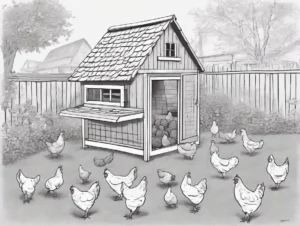
Raising chickens can be a fun and rewarding hobby, but it’s important to be aware of the common chicken health issues that can affect your flock. By understanding these problems and how to prevent and treat them, you can help keep your chickens happy and healthy.
Common Chicken Health Issues
Here are some of the common chicken health issues that owners encounter, and what you can do about them.
Respiratory Infections
One of the most common health problems in chickens is respiratory infections. These can be caused by viruses, bacteria, or fungi, and can lead to symptoms like coughing, sneezing, nasal discharge, and difficulty breathing. Respiratory infections can spread quickly through a flock, so it’s important to act quickly if you notice any signs of illness.
To prevent respiratory infections in chickens, make sure your chicken coop is well-ventilated and free of drafts. You should also keep the coop clean and dry, and avoid overcrowding your birds. If a chicken does become sick, isolate it from the rest of the flock and consult your veterinarian about treatment options, which may include antibiotics or antifungal medications.
Parasites
Parasites are another common health issue for chickens.
Internal parasites like worms can cause poor growth, reduced egg production, and even death in severe cases. External parasites like mites and lice can also be a problem, leading to feather loss, skin irritation, and general discomfort for your birds.
To prevent parasites, keep the chicken coop and run clean and dry, and consider using a safe, natural parasite control product. You should also quarantine any new chickens you bring into your flock to prevent the spread of parasites. If you do notice signs of a parasite infestation, consult your vet about the best treatment options.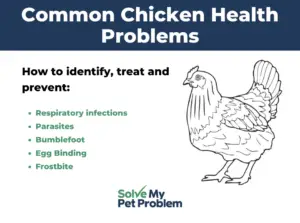
Bumblefoot is a type of bacterial infection that can affect the feet and lower legs of chickens. It’s caused by a bacteria that enters the skin through a cut or abrasion, and can lead to swelling, redness, and even lameness in severe cases.
To prevent bumblefoot, make sure your chickens have clean, dry bedding and perches that are the right size and shape for their feet. Trim their nails regularly and check their feet for any cuts or sores. If you do notice signs of bumblefoot, you may need to treat the affected area with an antibiotic ointment or have your vet perform surgery to remove the infected tissue.
Egg Binding
One of the more frequent chicken health issues is egg binding. This is a condition where a chicken is unable to lay an egg, and the egg becomes stuck inside the body. This can be a serious and potentially life-threatening problem, and it’s important to act quickly if you suspect a chicken is egg bound.
Signs of egg binding include straining to lay an egg, lethargy, and a swollen or distended abdomen. If you notice these symptoms, you should contact your vet right away for treatment. In some cases, the vet may be able to help the chicken pass the egg manually, but in more severe cases, surgery may be necessary.
To prevent egg binding, make sure your chickens have a balanced diet that includes enough calcium and other essential nutrients. You should also provide them with a clean, comfortable nesting box where they can lay their eggs.
Frostbite
Chickens are generally hardy birds and can withstand very cold weather. However, many flock owners overlook frostbite. This can affect the comb, wattle, and feet, and can lead to tissue damage and even loss of those body parts.
To prevent frostbite, make sure your chicken coop is well-insulated and free of drafts. You can also provide your birds with extra bedding and consider using a heat lamp or other supplemental heat source if the weather gets extremely cold. If you do notice signs of frostbite, such as discoloration or swelling, you should consult your vet about the best treatment options.
By being aware of these common chicken health issues and taking steps to prevent and treat them, you can help keep your flock happy, healthy, and productive. Remember to always consult with a veterinarian if you have any concerns about the health of your chickens, and be prepared to act quickly if you notice any signs of illness or injury.

-
-
-
Chicken Health Issues FAQs
Here are some frequently asked questions about common chicken health problems:
What are some common health problems in chickens?
Some of the most common health problems chickens face include:
- Respiratory infections: These can be caused by viruses, bacteria, or fungi. Signs of respiratory infection include coughing, sneezing, nasal discharge, and difficulty breathing.
- Parasites: Internal parasites like worms can cause poor growth, reduced egg production, and death. External parasites such as mites and lice can lead to feather loss, skin irritation, and discomfort.
- Bumblefoot: This bacterial infection affects the feet and lower legs. Causes include bacteria entering the skin through a cut or abrasion. Symptoms range from swelling and redness to lameness in severe cases.
- Egg binding: This occurs when a chicken is unable to lay an egg, causing it to become stuck inside the body. This can be life-threatening.
- Frostbite: While generally hardy, chickens are susceptible to frostbite, especially in very cold weather. Frostbite can affect the comb, wattle, and feet, leading to tissue damage and even loss of these body parts.
How can I prevent respiratory infections in my chickens?
You can prevent respiratory infections in your flock by:
- Ensuring your chicken coop is well-ventilated and free of drafts.
- Keeping the coop clean and dry.
- Avoiding overcrowding your birds.
What should I do if one of my chickens gets a respiratory infection?
If you notice signs of illness, isolate the sick chicken from the rest of the flock. Consult your veterinarian about treatment options, such as antibiotics or antifungal medications.
How can I prevent parasites in my chickens?
You can prevent parasites by:
- Keeping the chicken coop and run clean and dry.
- Considering using a safe, natural parasite control product.
- Quarantining new chickens to prevent the spread of parasites.
What should I do if I think my chickens have parasites?
If you notice signs of parasites, consult your veterinarian about the best treatment options.
How can I prevent bumblefoot in my chickens?
You can help prevent bumblefoot by:
- Providing your chickens with clean, dry bedding.
- Using perches that are the right size and shape for their feet.
- Trimming your chickens’ nails regularly.
- Checking their feet for any cuts or sores.
What should I do if one of my chickens has bumblefoot?
If you notice signs of bumblefoot, treat the affected area with an antibiotic ointment or consult your veterinarian. They may need to perform surgery to remove infected tissue.
What are the signs of egg binding?
Signs of egg binding include:
- Straining to lay an egg.
- Lethargy.
- A swollen or distended abdomen.
What should I do if I suspect a chicken is egg bound?
Contact your veterinarian immediately for treatment. They may be able to help the chicken pass the egg manually, but surgery may be required in severe cases.
How can I prevent egg binding in my chickens?
You can prevent egg binding by:
- Providing a balanced diet that includes enough calcium and other essential nutrients.
- Providing a clean, comfortable nesting box.
How can I prevent frostbite in my chickens?
You can prevent frostbite by:
- Making sure the chicken coop is well-insulated and free of drafts.
- Providing extra bedding.
- Considering using a heat lamp or another heat source if the weather becomes extremely cold.
What should I do if I notice signs of frostbite on my chickens?
If you notice signs of frostbite, such as discoloration or swelling, consult your veterinarian about treatment options.
It’s important to note that this information is for general knowledge only and does not constitute professional veterinary advice. Always consult with a veterinarian for any health concerns about your chickens.
You Might Like
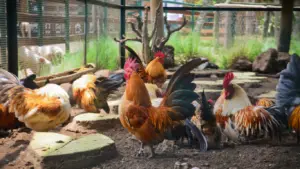
Chicken Coop Ventilation – How Much Do You Need?
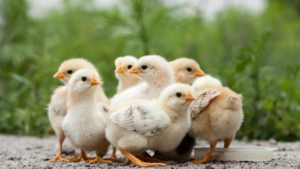
How to Build a Chicken Coop Door
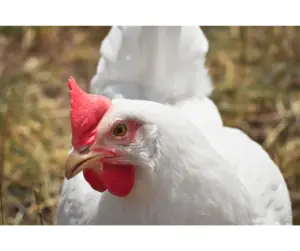
Green Diarrhea in Chickens: What It Means and How to Help
Share via:
